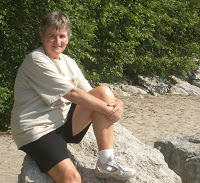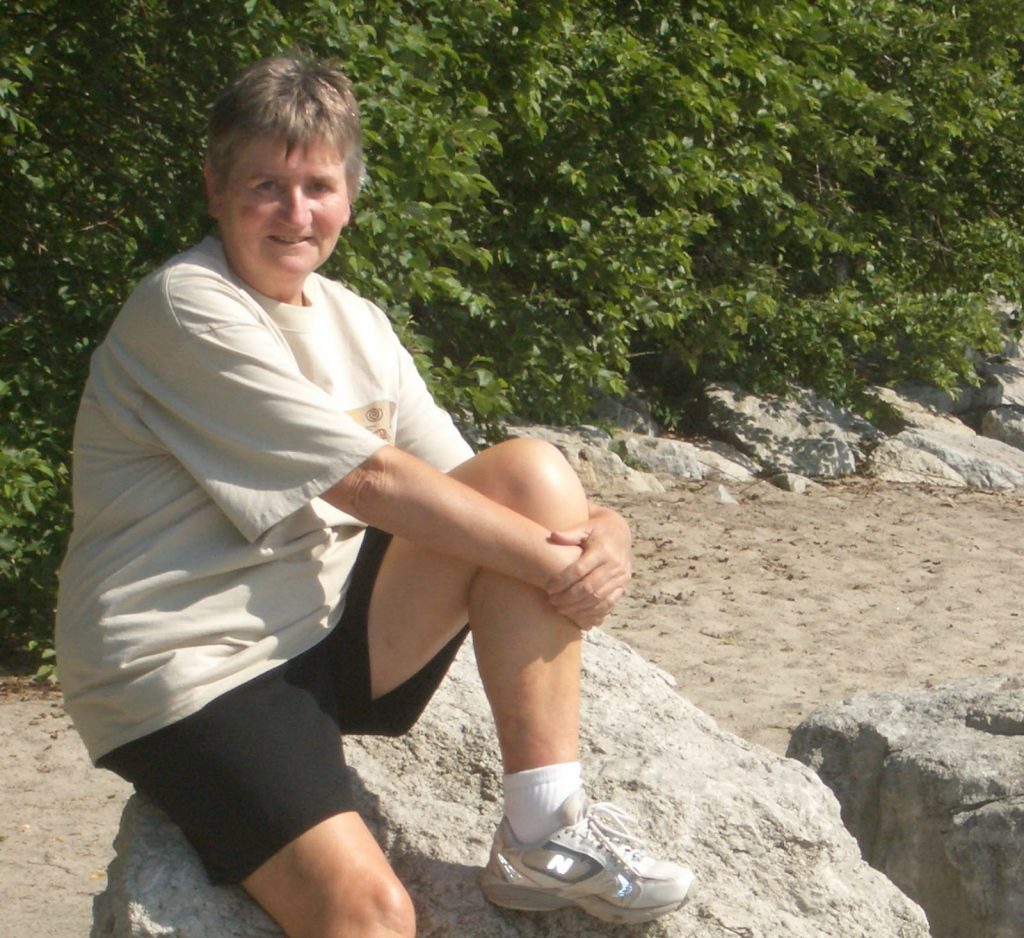You all remember that old
sexist joke from the seventies?
sexist joke from the seventies?
New hubby and bride ride
off after the wedding down the trail in the horse buggy. The horse is very
skittish and rears up, almost upsetting the buggy. “That’s one,” says
new hubby. The horse takes off at a gallop, stops suddenly and almost dumps
them both on the ground. “That’s two,” says new hubby. All goes well
for a while, then suddenly the horse bolts off the road and comes to a halt
after just missing a tree. New hubby takes up his rifle and shoots the horse.
“That’s three.”
off after the wedding down the trail in the horse buggy. The horse is very
skittish and rears up, almost upsetting the buggy. “That’s one,” says
new hubby. The horse takes off at a gallop, stops suddenly and almost dumps
them both on the ground. “That’s two,” says new hubby. All goes well
for a while, then suddenly the horse bolts off the road and comes to a halt
after just missing a tree. New hubby takes up his rifle and shoots the horse.
“That’s three.”
“What on earth did
you do a crazy thing like that for?” asks the horrified wife.
you do a crazy thing like that for?” asks the horrified wife.
“That’s one,”
replies new hubby.
replies new hubby.
Now there is an
unforgiving man! And I have to say, if anyone ever physically abused me, which
I’m fortunate enough to say has never happened, that would be one. And I doubt
we’d get to three. Not that I would ever shoot anyone; but I’d be gone.
unforgiving man! And I have to say, if anyone ever physically abused me, which
I’m fortunate enough to say has never happened, that would be one. And I doubt
we’d get to three. Not that I would ever shoot anyone; but I’d be gone.
I actually don’t like the
word forgiveness. It somehow implies that the forgiver is superior to the forgivee.
I have never said the words I forgive you to anyone. But maybe that is
simply because I have been lucky enough not to have had anything terrible occur
for which I needed to consider forgiveness. Nor has anyone said it to me. I
perhaps have committed an occasional transgression which required forgiveness
by my loved ones, but I knew that I was forgiven by their actions rather than
from any words of forgiveness. I am sure that my eventual coming out at middle
age required some forgiveness by my family, as it meant I was leaving.
Destroying that family in it’s current form. For some it took a while, but I
now know, again without words, that I am forgiven.
word forgiveness. It somehow implies that the forgiver is superior to the forgivee.
I have never said the words I forgive you to anyone. But maybe that is
simply because I have been lucky enough not to have had anything terrible occur
for which I needed to consider forgiveness. Nor has anyone said it to me. I
perhaps have committed an occasional transgression which required forgiveness
by my loved ones, but I knew that I was forgiven by their actions rather than
from any words of forgiveness. I am sure that my eventual coming out at middle
age required some forgiveness by my family, as it meant I was leaving.
Destroying that family in it’s current form. For some it took a while, but I
now know, again without words, that I am forgiven.
John Ortberg says, “Forgiveness
means giving up the right to get even.”
To me that is a dreadfully superficial understanding of forgiveness. It
is so much more than that. “Forgiveness,”
says Desmond Tutu, who certainly had to do plenty of it, “says you are
given another chance to make a new beginning.” That sounds much closer to
the truth to me.
means giving up the right to get even.”
To me that is a dreadfully superficial understanding of forgiveness. It
is so much more than that. “Forgiveness,”
says Desmond Tutu, who certainly had to do plenty of it, “says you are
given another chance to make a new beginning.” That sounds much closer to
the truth to me.
And Bernard Meltzer
claims that when you forgive you cannot change the past, but you sure do change
the future. You change yours, if in fact no-one else’s. You cannot control
whether the one you have forgiven changes his or her ways, but you can set
yourself free, at least. You can go forward, free of the heavy baggage of anger
and resentment engendered by un-forgiveness.
claims that when you forgive you cannot change the past, but you sure do change
the future. You change yours, if in fact no-one else’s. You cannot control
whether the one you have forgiven changes his or her ways, but you can set
yourself free, at least. You can go forward, free of the heavy baggage of anger
and resentment engendered by un-forgiveness.
Oprah
Winfrey has said, “True forgiveness is when you can say, Thank you for that
experience.”
Winfrey has said, “True forgiveness is when you can say, Thank you for that
experience.”
Now that’s
a hard one. When you find out your spouse has been ‘playing away’ or indulging
in a gambling addiction which lost all the family nest egg, are you really
strong enough to say to yourself, with complete sincerity, I am grateful for
that experience?
a hard one. When you find out your spouse has been ‘playing away’ or indulging
in a gambling addiction which lost all the family nest egg, are you really
strong enough to say to yourself, with complete sincerity, I am grateful for
that experience?
What I am very
grateful for is that I have never been put to that test, and firmly believe I
never will be.
grateful for is that I have never been put to that test, and firmly believe I
never will be.
© 2 March 2015
About the Author
I
was born and raised in England. After graduation from college there, I moved to
the U.S. and, having discovered Colorado, never left. I have lived in the
Denver-Boulder area since 1965, working for 30 years at IBM. I married, raised
four stepchildren, then got divorced after finally, in my forties, accepting
myself as a lesbian. I have now been with my wonderful partner Betsy for 28
years.
was born and raised in England. After graduation from college there, I moved to
the U.S. and, having discovered Colorado, never left. I have lived in the
Denver-Boulder area since 1965, working for 30 years at IBM. I married, raised
four stepchildren, then got divorced after finally, in my forties, accepting
myself as a lesbian. I have now been with my wonderful partner Betsy for 28
years.

